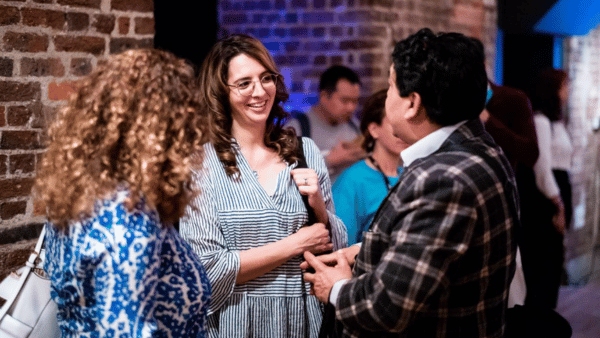Alex Dunedin runs The Ragged University, a project that provides a platform for the free exchange of knowledge and skills in social spaces. Alex talks about his belief in free education and what inspires him:
1) Please give a brief explanation of what it is you do and why?
I run the Ragged University project which gets people to share their knowledge and skills in social places in the traditions of the Ragged Schools and the Dr Andrew Bell’s Madras peer led teaching method. I do this because it generates inclusive social capital and updates a movement which changed the world for the better in a very tangible way, by providing free education.
2) What did you join the Fellowship for?
I joined the RSA Fellowship to be able to associate with the kind of people who are both skilled and motivated to improve the quality of life for everyone through enlightenment values.
3) In what capacity do you think you could contribute to society/the Fellowship?
I believe that I bring bridging capacity and innovative thinking to a compartmentalised society which is suffering from various forms of bureaucratic gridlock. I bring a different demographic to the Fellowship, one which is underrepresented and often not able to contribute it’s expertise to such a noble movement of thought/action.
4) What would you change in society given the chance?
I want to increase social cohesion and enfranchise people in a civic way through realising ‘Dead Capital’ [Hernando de Soto Polar] and ‘Dead Stock’ [Adam Smith] in and around culture. Through legal equity and bureaucratic agency, a stable more reliable economy can yield its equilateral benefits. Most importantly, I aim to propagate inclusive forms of bonding, bridging and linking social capital to knit the fabric of a civic society which is invested in its own collective happiness and prosperity.
5) What recent bit of news have you heard which inspires you?
I have recently heard about how Wangari Maathai survived considerable ordeals and barriers to improve environment and society. She was awarded a Nobel prize for her contribution to ‘sustainable development, democracy and peace’ in 2004. What inspired me particularly was this notion of reclaiming fruitful land from the desert by planting trees – a powerful symbol in this age.
6) What did you learn last week? I learned last week that successful economic regeneration initiatives must act on multiple levels taking into consideration the interface between economic regeneration, social and environmental regeneration as well as acting in key strategic locations in order to assist the development and implementation of urban renewal plans. Such enterprises must be formulated in a way which is Specific, Measurable, Agreed upon, Realistic, and Timebound.
7) Tell us about another interesting Fellow you have spoken to.There are many. Professor Antonella Sorace who has a passion for linguistics and the importance of people to speak more than one language. Her work is particularly pertinent because the propensity of people born in the United Kingdom to speak only English produces considerable disadvantages socially, intellectually and neurologically. Her work is crystallised in the organisation of Bilingualism Matters and her pedagogical work is based at the University of Edinburgh.
8) What would you like to connect with Fellows about? Please tell us if there is anything you would like from other Fellows
I would like to call Fellows to collectively rally around the economic regeneration of Streatham Common after a bridge closure has resulted in the decimation of local businesses and jobs. This threatens to get worse if some affirmative action is not taken quickly. Streatham is a historically deprived area, is one of the oldest communities in London, and also has one of the broadest cultural demographics in the UK.
My social project, Ragged University, has been asked to project manage the regeneration of the area and it is a great opportunity for the RSA to demonstrate in tangible terms what we can collectively achieve. Personally, I would like to illustrate the Fellowship as an enlightenment organisation which can bring about the changes that the country needs in a time which needs optimistic messages.
I need Fellows to provide business mentoring for surviving businesses, regeneration advice, expertise with collective buying schemes for local businesses, and bring experience in accessing funding resources for the area’s renewal. Also I am looking for Fellows across the country to come and showcase their work in Streatham to illustrate the diversity of the RSA in its work. People are losing their livelihoods and I believe the RSA needs to become more widely known for its vision.
You can connect with Alex:
By following @RaggedTalks on Twitter
Related news
-
Become an RSA Fellowship Councillor
Ben Fleming
RSA Fellowship Councillors play a key role in ensuring the Fellowship’s voice is heard. Read more about the Fellowship Councillor vacancies open in Scotland, Ireland, North England and Oceania.
-
Join the Fellowship Council: apply by 5 April
Fellowship Councillors are at the heart of the RSA and play a key role in ensuring the Fellowship’s voice is heard, by providing a vital link between staff and our unique global network of changemakers. Could you be the next Fellowship Councillor for Ireland or the South East?
-
Fellowship invited to shape the future of the RSA
In 2023, we introduced more ways for Fellows to get involved in our work than ever before. Your views are vital in shaping our shared future. Here we outline some of the ways we have engaged Fellows in 2023.



Be the first to write a comment
Comments
Please login to post a comment or reply
Don't have an account? Click here to register.